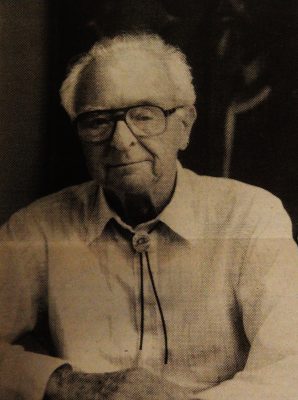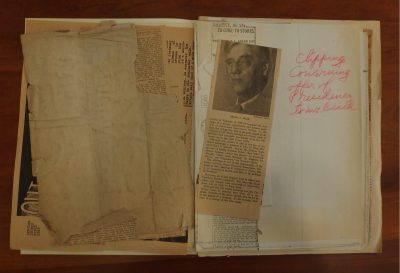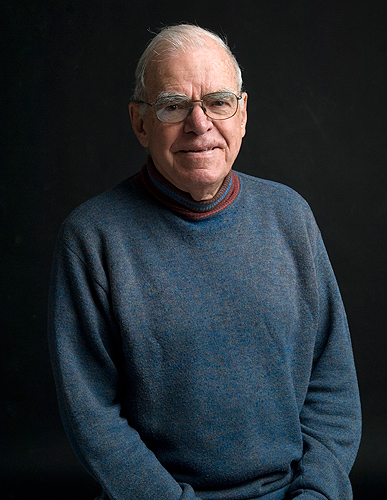Endowment:
In 2014, I was honored to be the first holder of the James Barnett Professorship in Humanistic Anthropology. The Barnett Professorship was endowed by Professor Dennison Nash. The position is stipulated as a joint appointment between the Department of Anthropology in CLAS and University of Connecticut Humanities Institute. Dennison Nash joined UConn in 1957 in what was then the Department of Anthropology and Sociology, and retired in 1991 as Professor Emeritus. James Barnett was the head of the department when Denny was hired, and it was Denny’s wish that this professorship be named in Barnett’s honor.

James Barnett:
James Harwood Barnett was born in Owensboro, KY, on 9 October 1906. He attended Lindsey Wilson Junior College and Berea College, obtaining his A.B. degree in 1928. He was awarded a M.A. in 1930 from the University of Pennsylvania and a Ph.D. in 1939. He was a Harrison Fellow in Sociology at the University from 1933 until 1935.
Barnett was employed by the University of Connecticut in 1935 as an instructor in Sociology. He specialized in the history of social thought and the sociology of art and literature. He attained full professorship in 1948 as was head of the Sociology Department from 1948 until 1962. Barnett directed the Honor’s Program from 1967 until his retirement in 1970. While at the University, Barnett served on numerous committees, including one which resulted in the establishment of the School of Social Work in 1946. He was a member of the University Senate for almost thirty years and was consistently reelected by his colleagues to the Senate Committee of Three, the guardian of academic tenure.
A prolific author, Barnett has over thirty publications, including The American Christmas, a study in national culture published in 1954 and numerous biographies of campus notables, such as Walter Stemmons, Professor I. G. Davis and former President Charles Beach. Barnett saw the purpose of these biographies as portraying “the unique value or contribution each made to his world as he knew it.”



Apart from his scholastic duties, Barnett participated in many civic activities. In 1943, he worked for the War Relocation Authority as a community analyst at a Japanese relocation camp in Gila, Arizona. While on leave from the University from 1963 to 1965, he served as executive secretary to the Small Grants Committee of the National Institute of Mental Health. On the state level, Barnett was a member of the Board of Directors of the Connecticut Prison Association and the Board of Directors of Connecticut Children’s Services. Locally, Barnett served on the Storrs Board of Education and was a member of the original Mansfield Town Council and a Justice of the Peace.
* The text and photos were provided by the Thomas J. Dodd’s Research Center at UCONN
James H. Barnett Papers. Archives & Special Collections at the Thomas J. Dodd Research Center, University of Connecticut Libraries.

Dennison Nash:
Nash was born on July 2, 1924 in East Orange, N.J., the only child of Ray and Marie Nash. He served as a corporal in the U.S. Army Air Force during World War II in Europe. Following his military service, he earned a BA at St. Lawrence University, an MA from Washington University, and a Ph.D. from the University of Pennsylvania. In 1957, he joined the faculty of the University of Connecticut in what was then the Department of Anthropology and Sociology, and he retired in 1991 as a professor emeritus.Nash was a prolific writer with numerous publications, and was a pioneer in the study of the anthropology of tourism. He wrote what is considered the most important book in that field, The Anthropology of Tourism, in 1996. His most recent book, which he edited in 2007, was The Study of Tourism: Anthropology and Sociological Beginnings. He was a fellow of The Camargo Foundation in France, dedicated to scholarship in the humanities and social sciences, and The MacDowell Colony in New Hampshire, the oldest artists’ colony in the U.S.Well before and after retirement Nash was involved in a number of non-profit organizations on a global, national, and local level. He was a great wine connoisseur and a leader in a local “wine group,” and he loved to garden. He was a founder and longtime supporter of UConn’s EcoGarden.